Testing and Benchmarks
ATTO disk benchmark utility:
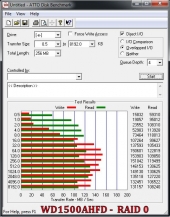 |
 |
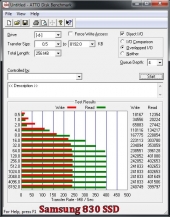 |
Right out the gate, I was impressed with not only the 200~ MB/sec performance of the WD1000DHTZ, but also the consistency in which it delivered it. The WD1000DHTZ nips at the heels of the Samsung’s write performance, but is eclipsed by 400MB/sec read performance.
CrystalDiskMark:
 |
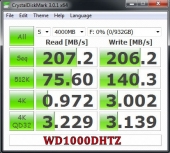 |
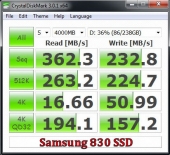 |
Here the WD1000DHTZ continued its performance consistency. It still doubled the older raptor drives running in a RAID 0, but fell short of the SSD in every facet. I was expecting the race to be tighter when it came to sequential, as that is still one area spinning media can compete with SSDs.
HDTune:
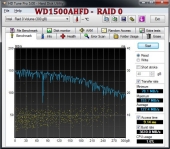 |
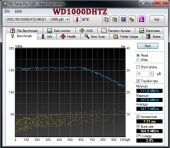 |
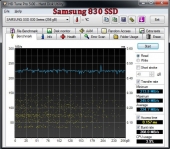 |
With HDTune, the separation between the older raptor drives in RAID 0 and the WD1000DHTZ was very small. However, the performance of the WD1000DHTZ was tight and more consistent than the raptor drives in RAID 0. Sadly, the Samsung SSD really emphasized the performance delta between HDDs and SSDs with this test.


While I agree its hard to find the exact spot this drive fits into, Its still a good buy for somone that needs performance and plenty of room. SSD’s are still way too expensive if you need a TB of performance room.
My next rig will have a pair of these in raid 0, along with a SSD as the primary windows drive.
Kevin,
Yes, there is still a “sweet spot” for these drives and you put it nicely when you say performance TB. Anyone looking for high performance in capacities that exceed SSDs (limited architecturally or by price), should seriously consider these new Raptor drives.